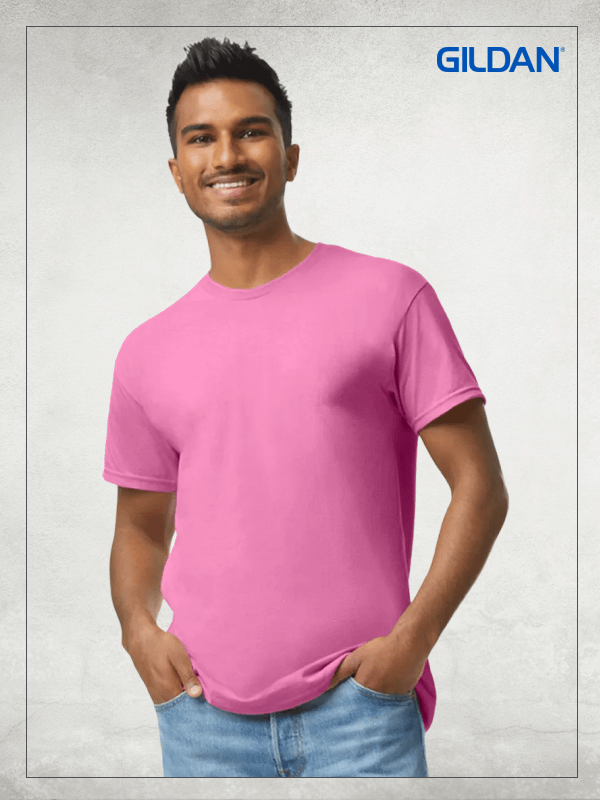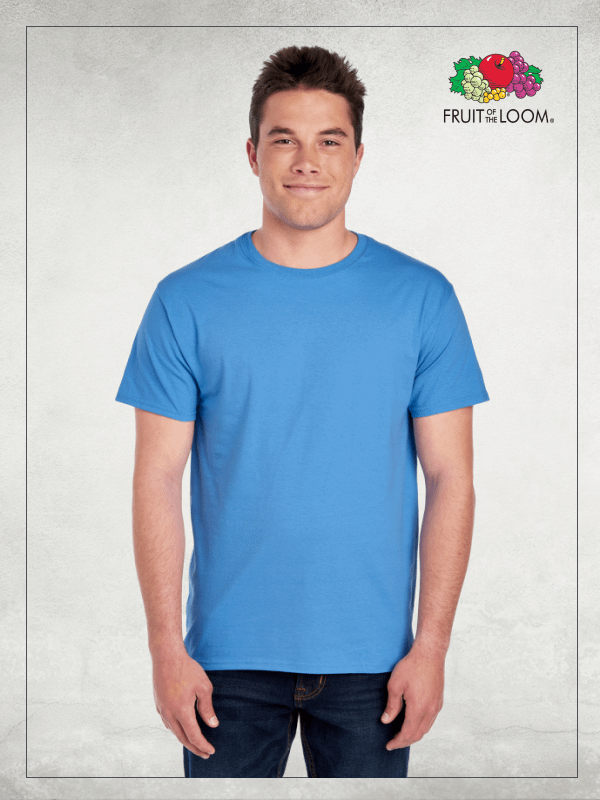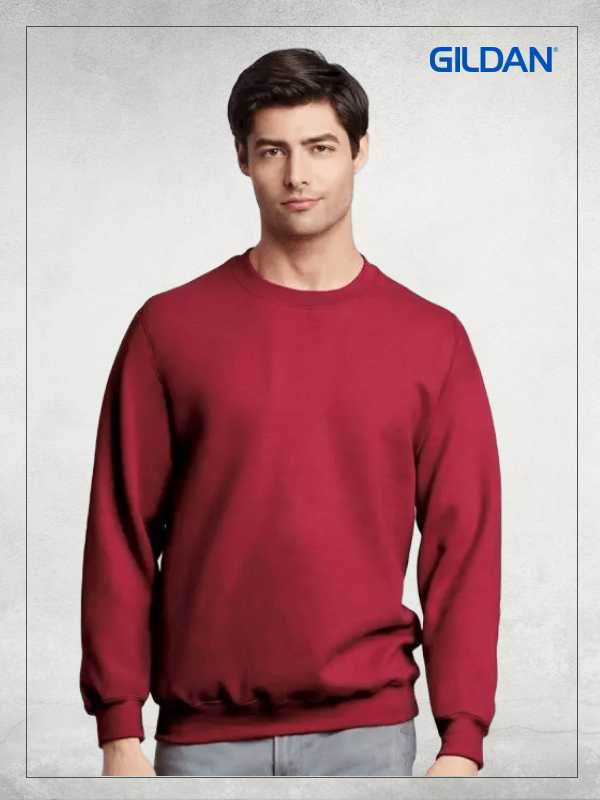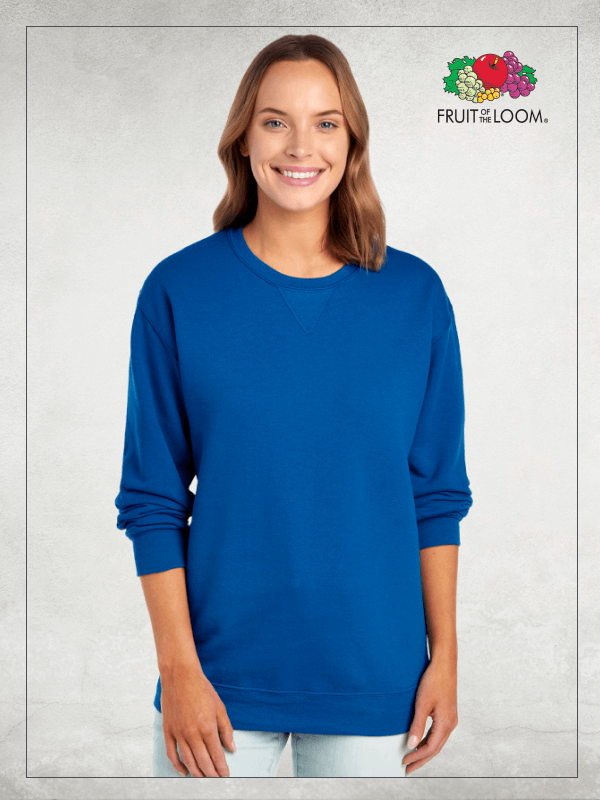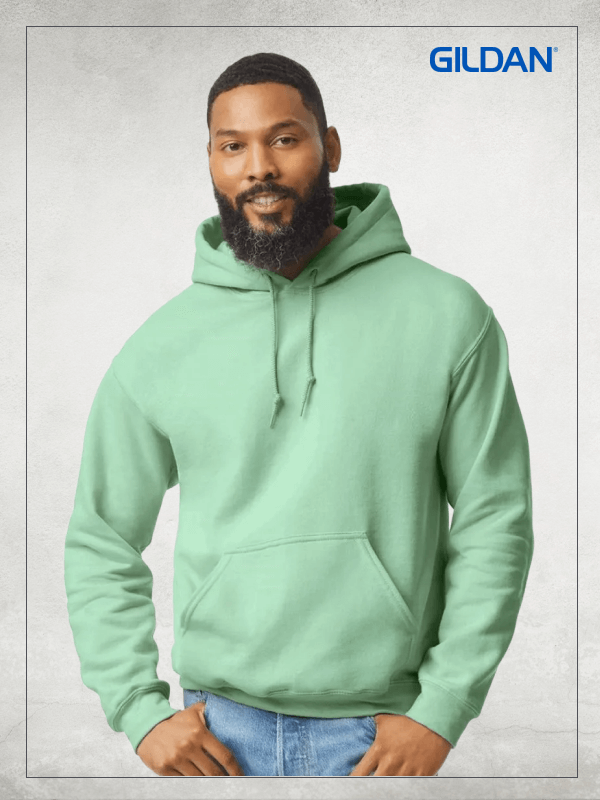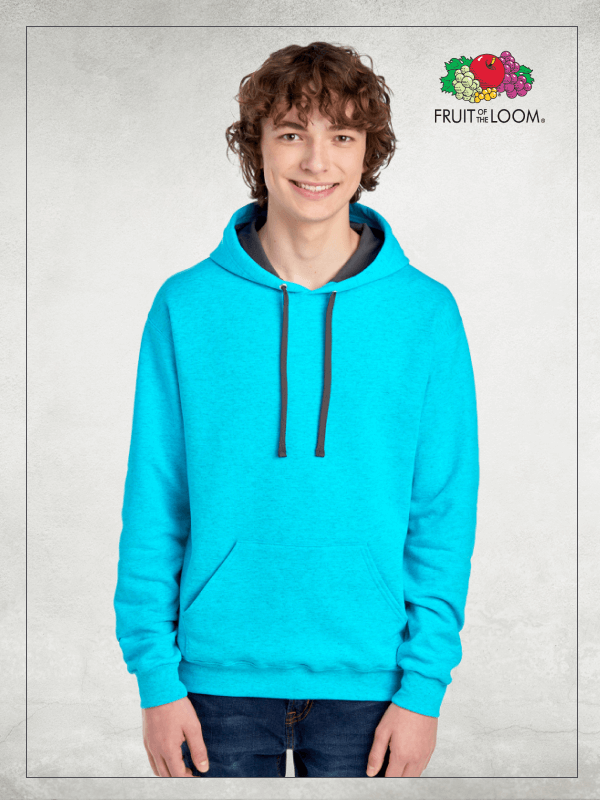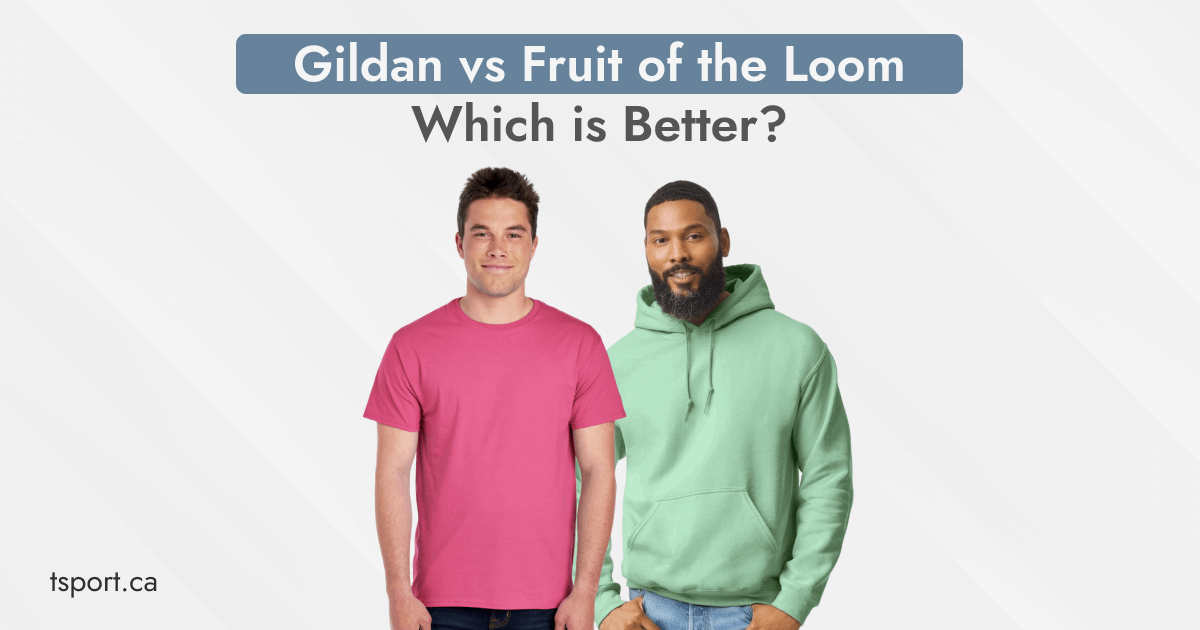
When it comes to blank apparel for printing or everyday wear, Gildan and Fruit of the Loom are two of the most trusted names in the industry. While both brands offer budget-friendly basics, the major difference lies in fit and fabric quality. Gildan is known for its wider range of styles and heavier fabrics, making it a favorite for durable t-shirts, sweatshirts, and hoodies. In contrast, Fruit of the Loom often leans toward softer, lighter-weight options with a classic retail fit, appealing to those who prioritize comfort and simplicity.
Choosing the right brand for bulk purchasing can significantly impact your business's profitability and customer satisfaction. Gildan and Fruit of the Loom are two titans in the apparel industry, each known for their quality, affordability, and extensive product lines. This article aims to provide a detailed comparison of these brands, focusing on t-shirts, sweatshirts, and hoodies to help wholesalers, retailers, and bulk buyers make informed decisions.
Gildan Brand History and Background
Founded in 1984, Gildan has grown from a small Canadian family business into a global leader in the apparel industry. The company initially started as a children's apparel manufacturer but quickly expanded its product line to include adult activewear. Gildan is renowned for its vertically integrated supply chain, which allows for greater control over quality and cost. This approach has helped Gildan maintain competitive pricing while ensuring high standards across its product range.
Gildan's commitment to sustainability is also noteworthy. The company has made significant investments in eco-friendly practices, such as water conservation, waste reduction, and energy efficiency. Their Genuine Responsibility™ program emphasizes ethical labor practices and environmental stewardship, aligning with the growing consumer demand for socially responsible brands.
Fruit of the Loom Brand History and Background
Fruit of the Loom is a venerable name in the apparel industry, with a history dating back to 1851. Founded in Rhode Island, USA, the brand quickly became synonymous with quality undergarments and casual wear. In 1871, Fruit of the Loom became one of the world's first trademarked brands, solidifying its place in American culture.
Acquired by Berkshire Hathaway in 2002, Fruit of the Loom has continued to innovate and expand its product offerings. The brand is known for its reliable quality and comfort, making it a favorite among consumers and businesses alike. Fruit of the Loom also prioritizes sustainability, with initiatives focused on reducing their environmental footprint and improving manufacturing processes.
Gildan vs Fruit of the Loom T-shirts:
T-shirts are a cornerstone of both Gildan and Fruit of the Loom's product lines, and they cater to a wide range of markets, from everyday casual wear to custom-printed promotional items. Here's a deeper look into their t-shirt offerings, focusing on specific aspects like material quality, fit, durability, and price.
1. Material Quality
Gildan T-shirts: Gildan offers a variety of t-shirts made from different materials to suit various needs. The Gildan 5000 Heavy Cotton T-shirt is a standout, made from 100% preshrunk cotton. This ensures minimal shrinkage after washing, maintaining the shirt’s original size and fit. Gildan also provides t-shirts made from blended fabrics, such as the Gildan DryBlend® series, which combines cotton and polyester for moisture-wicking properties, making them ideal for athletic wear.
Fruit of the Loom T-shirts: Fruit of the Loom is renowned for its high-quality cotton t-shirts. The 3930R HD Cotton T-shirt is crafted from high-density cotton, which not only provides a soft feel but also enhances print clarity. This makes it a popular choice for screen printing and other customization methods. Additionally, the Sofspun® t-shirts offer an ultra-soft feel with a slight stretch, providing a more tailored and comfortable fit.
2. Fit and Comfort
Gildan T-shirts: Gildan t-shirts are known for their consistent fit and comfort. They offer a classic fit that appeals to a broad audience. The preshrunk cotton ensures that the fit remains stable over time, providing reliability for bulk orders. Gildan also offers a range of sizes, including options for youth and plus sizes, ensuring inclusivity in their product line.
Fruit of the Loom T-shirts: Fruit of the Loom places a strong emphasis on comfort. Their t-shirts often feature a slightly tapered fit for a modern look while still providing ample room for movement. The Sofspun® t-shirts are particularly noted for their softness and comfort, making them a favorite for everyday wear.
3. Durability
Gildan T-shirts: Durability is a key selling point for Gildan t-shirts. The heavyweight cotton used in many of their t-shirts, such as the G500, provides robust construction that can withstand repeated washings and heavy use. The blended fabric options also offer enhanced durability, making them suitable for active and outdoor wear.
Fruit of the Loom T-shirts: Fruit of the Loom t-shirts are designed to last. The high-density cotton used in the HD Cotton line not only improves print quality but also enhances the shirt's longevity. The reinforced seams and double-stitched hems add to the durability, ensuring that these t-shirts can handle regular wear and tear.
4. Price
Gildan T-shirts: Gildan t-shirts are known for their affordability, making them a popular choice for bulk purchases. Their competitive pricing does not compromise quality, providing excellent value for money. This makes Gildan a preferred option for budget-conscious buyers who still want reliable and durable apparel.
Fruit of the Loom T-shirts: While Fruit of the Loom t-shirts are slightly more expensive than Gildan's, they offer superior comfort and print quality. The price difference is often justified by the enhanced softness and fit, making them a worthwhile investment for those prioritizing these aspects.
Gildan vs Fruit of the Loom Sweatshirts:
Sweatshirts are a key component of casual and activewear, providing warmth and comfort. Both Gildan and Fruit of the Loom offer a variety of sweatshirts, but there are distinct differences in their offerings.
1. Material Quality
Gildan Sweatshirts: Gildan sweatshirts, such as the Gildan 18000 Heavy Blend Crewneck, are made from a blend of 50% cotton and 50% polyester. This blend ensures a soft feel while providing the durability needed for everyday wear. The polyester content helps in reducing pilling and increases the garment's overall longevity.
Fruit of the Loom Sweatshirts: Fruit of the Loom's SF72R SofSpun Crewneck Sweatshirt also uses a cotton-polyester blend. The brand's EverSoft® technology enhances the softness of the fabric, making their sweatshirts exceptionally comfortable. This technology also ensures the fabric remains soft wash after wash, which is a significant advantage for long-term use.
2. Fit and Comfort
Gildan Sweatshirts: Gildan sweatshirts offer a relaxed fit that caters to a wide audience. The ribbed cuffs and waistband provide a snug fit, while the overall design ensures ease of movement. These sweatshirts are suitable for layering, making them versatile for different weather conditions.
Fruit of the Loom Sweatshirts: Fruit of the Loom sweatshirts focus on comfort and a slightly modern fit. The EverSoft® line provides an exceptionally soft interior, making them cozy for everyday wear. The fit is designed to be comfortable yet flattering, appealing to those who prefer a more tailored look without sacrificing comfort.
3. Durability
Gildan Sweatshirts: Durability is a hallmark of Gildan sweatshirts. The cotton-polyester blend is resilient, and the heavy blend fabric used in the 18000 series is built to withstand frequent use. The double-needle stitching on the shoulders, armholes, neck, waistband, and cuffs ensures these sweatshirts hold up well over time.
Fruit of the Loom Sweatshirts: Fruit of the Loom sweatshirts are equally durable, with reinforced stitching and robust fabric construction. The EverSoft® technology not only enhances comfort but also contributes to the durability, ensuring the sweatshirts remain soft and in good condition after numerous washes.
4. Price
Gildan Sweatshirts: Gildan offers competitively priced sweatshirts, making them a cost-effective option for bulk purchases. Their affordability combined with durability makes them a preferred choice for schools, teams, and promotional events.
Fruit of the Loom Sweatshirts: Fruit of the Loom sweatshirts are priced slightly higher than Gildan’s, reflecting their premium feel and comfort. The enhanced softness and modern fit may justify the additional cost for buyers looking for a more luxurious option.
Gildan vs Fruit of the Loom Hoodies:
Hoodies are a versatile piece of clothing, popular for their comfort and style. Gildan and Fruit of the Loom both offer a range of hoodies, each with unique features.
1. Material Quality
Gildan Hoodies: Gildan hoodies, such as the Gildan 18500 Heavy Blend Hoodie, are made from a 50% cotton, 50% polyester blend. This combination ensures a balance between softness and durability. The fabric is designed to be warm and comfortable, making these hoodies suitable for colder weather.
Fruit of the Loom Hoodies: Fruit of the Loom’s SF76R SofSpun Hoodies are also made from a cotton-polyester blend, with an emphasis on enhanced softness. The EverSoft® technology ensures that the hoodies remain soft even after multiple washes, providing lasting comfort.
2. Fit and Comfort
Gildan Hoodies: Gildan hoodies are known for their generous fit, which is ideal for layering. The double-lined hood provides extra warmth, and the drawstring allows for adjustable comfort. The ribbed cuffs and waistband offer a secure fit, making these hoodies suitable for various activities.
Fruit of the Loom Hoodies: Fruit of the Loom hoodies offer a slightly more fitted design, appealing to those who prefer a modern look. The EverSoft® fabric provides a cozy interior, and the hood is designed for comfort and warmth. The fit is flattering yet comfortable, making these hoodies versatile for both casual and active wear.
3. Durability
Gildan Hoodies: Gildan’s Heavy Blend Hoodies are built to last. The double-needle stitching and sturdy fabric blend ensure these hoodies can handle regular use and washing. The fabric’s resistance to pilling adds to their durability, making them a reliable choice for long-term wear.
Fruit of the Loom Hoodies: Fruit of the Loom hoodies are also durable, with reinforced seams and high-quality fabric. The EverSoft® technology not only enhances comfort but also contributes to the hoodie’s resilience. These hoodies maintain their softness and structure even after repeated washes.
4. Price
Gildan Hoodies: Gildan hoodies are priced competitively, making them an attractive option for bulk purchases. Their affordability combined with durability and comfort makes them a popular choice for schools, sports teams, and promotional events.
Fruit of the Loom Hoodies: Fruit of the Loom hoodies are generally priced higher than Gildan’s, reflecting their premium quality and comfort. The EverSoft® technology justifies the additional cost, especially for buyers seeking a soft, long-lasting hoodie.
Gildan or Fruit of the Loom: Which is Better?
The decision between Gildan and Fruit of the Loom ultimately depends on your specific needs and priorities. Here are some key considerations to help you choose:
Price Sensitivity: If budget is a primary concern, Gildan generally offers lower prices across its product range, making it a preferred choice for bulk buyers seeking affordability without compromising on quality.
Comfort and Softness: Fruit of the Loom often takes the lead in terms of comfort and softness, especially with their Sofspun® and EverSoft® lines. If premium feel and comfort are crucial, Fruit of the Loom might be the better option.
Durability: Both brands are known for their durability, but Gildan's heavier fabric options often provide greater resilience for active use and frequent washing.
Customization Needs: For businesses focused on custom printing, Fruit of the Loom's high-density cotton t-shirts provide excellent print clarity, while Gildan's versatile fabric blends also perform well for various printing methods.
Sustainability: Both brands are committed to sustainable practices, but Gildan's comprehensive Genuine Responsibility™ program may offer an edge for businesses prioritizing eco-friendly and ethical sourcing.
In conclusion, both Gildan and Fruit of the Loom bring strong offerings to the table. Gildan's affordability and durability make it an excellent choice for cost-effective bulk purchases, while Fruit of the Loom's focus on comfort and premium feel may better suit businesses aiming to offer a higher-end product. Assess your specific requirements and priorities to make the best decision for your business.



